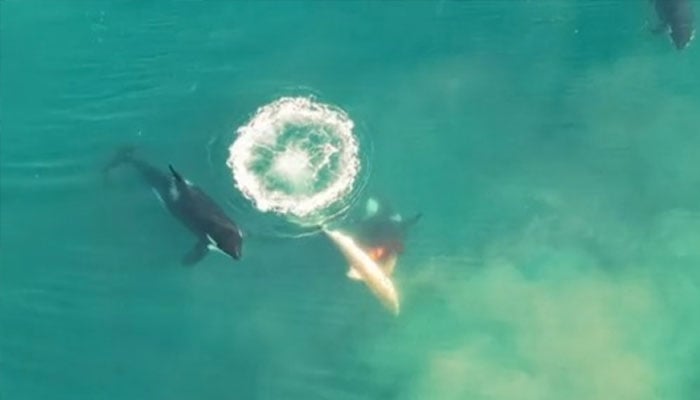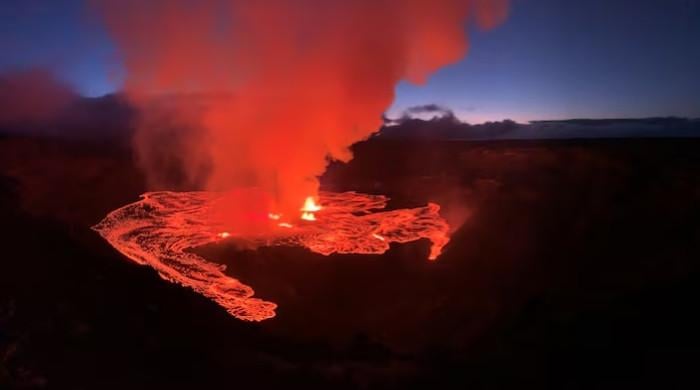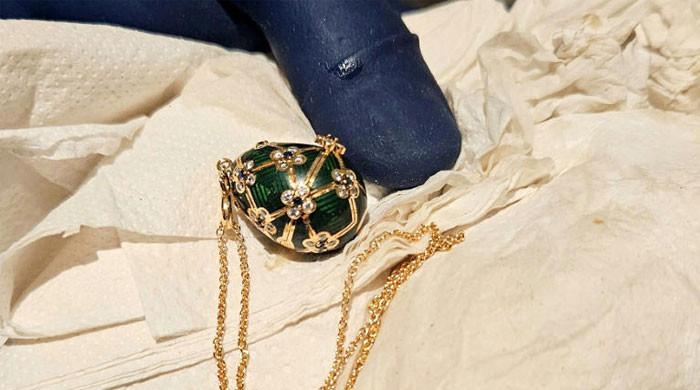WATCH: Lone orca filmed killing, eating great white shark off South African coast
This is first known case of a solitary orca hunting world's largest predatory fish
March 03, 2024

In a surprising event off the coast of Mossel Bay, South Africa, scientists have documented a lone killer whale, named Starboard, attacking and devouring a great white shark in under two minutes, securing the shark's liver as its prize, The Guardian reported.
The incident, detailed in the African Journal of Marine Science, provides unprecedented insights into the predatory behaviour of orcas, revealing the first known case of a solitary orca hunting the world's largest predatory fish.
Dr Alison Towner of Rhodes University, leading the research, noted that while orcas often hunt collaboratively, Starboard's rapid and solitary attack on a juvenile great white shark, estimated to be around 2.5 meters long and 100 kg in weight, is remarkable.
The event occurred on June 18, 2023, and the researchers observed the orca gripping the shark's fin, thrusting forward, and eventually eviscerating it.
The unusual occurrence challenges previous observations of orcas hunting in groups and opens new questions about the potential cooperation needed for larger prey.
Adult great white sharks can grow up to 6.5 meters and 2.5 tonnes. Starboard's predilection for shark livers, revealed in previous research, raises concerns about the ecological balance in coastal marine areas, as they may displace various shark species.
Despite the awe-inspiring nature of the event, Dr Primo Micarelli from the Shark Studies Centre and Siena University expressed growing concerns about the potential impact on coastal marine ecology.









